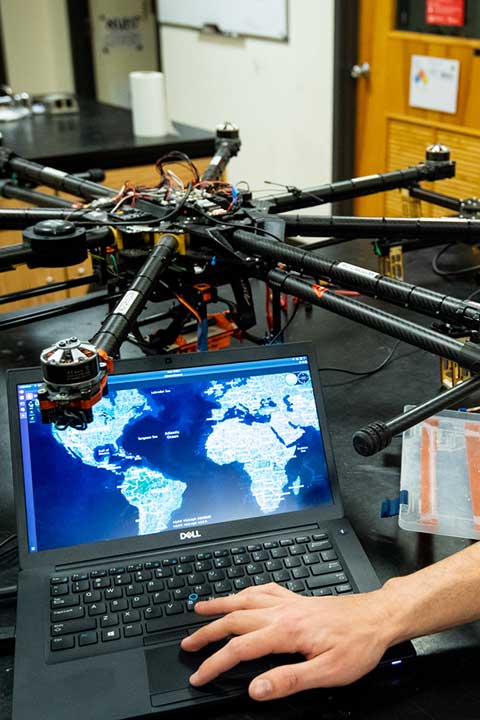
Bachelor of Science in Computer Engineering
Bachelor of Science in Computer Engineering
Overview
The use of computer technology is exploding, driven by applications in wireless communications, multimedia, portable devices, and internet computing. At the core of these technological advances are computer engineers who research, design, and develop hardware and software. With a Bachelor of Science (BS) degree in computer engineering you might develop a full-featured multimedia phone, design the next-generation microprocessor, program computer-guided cameras to inspect nanomanufacturing facilities, or start your own software company.
Innovative Curriculum
The computer engineering major acquires a strong foundation in engineering principles and the physical sciences in addition to a powerful mix of theory and practice in hardware and software design. The core of the computer engineering curriculum comprises courses in computer organization and architecture, computer networks, computer-aided design, programming languages, optimization theory, and software design.
The BS in Computer Engineering degree requires a sequence of core courses, technical electives, general electives, and electives in the arts and humanities and social sciences.
Students have the option of selecting from several minors to complement their degree and personalize their path. Students can select from minors in the department, in other engineering departments, or from across the university.
The Accelerated Master’s Degree PlusOne program allows current undergraduate students to accelerate the attainment of the master’s degree by applying graduate credits taken as an undergraduate toward both the undergraduate and graduate degrees. Current students apply to enroll in the PlusOne program. Students attain their bachelor’s degree followed by a PlusOne year to complete the master’s degree.
Students currently earning a BS in Computer Engineering can select from the below MS degree PlusOne pathways.
The Bachelor of Science Program in Computer Engineering is accredited by the Engineering Accreditation Commission of ABET, www.abet.org.
Experiential Learning
Experiential learning is the heart of a Northeastern education, combining rigorous coursework with hands-on experience in the classroom, in the lab, and in the field—locally and abroad. With our signature cooperative education (co-op) program, students typically gain six months of work experience integrated as part of the educational program. Both five-year, three-co-op and four-year, two-co-op program options are available.
Academic Advising
For support with academic questions, contact the academic advisor assigned to this program.
Admissions & Aid
Ready to take the next step? Review Degree Requirements to see courses needed to complete this degree. Then, explore ways to pay for your education. Finally, review Admissions Information to see our deadlines and gather the materials you need to Apply.
Student News
Professional Licensure: If looking for information on obtaining Professional Licensure, visit the Professional Licensure Disclosure Page or contact the Associate Dean for Undergraduate Education, Susan Freeman, at s.freeman@northeastern.edu.



